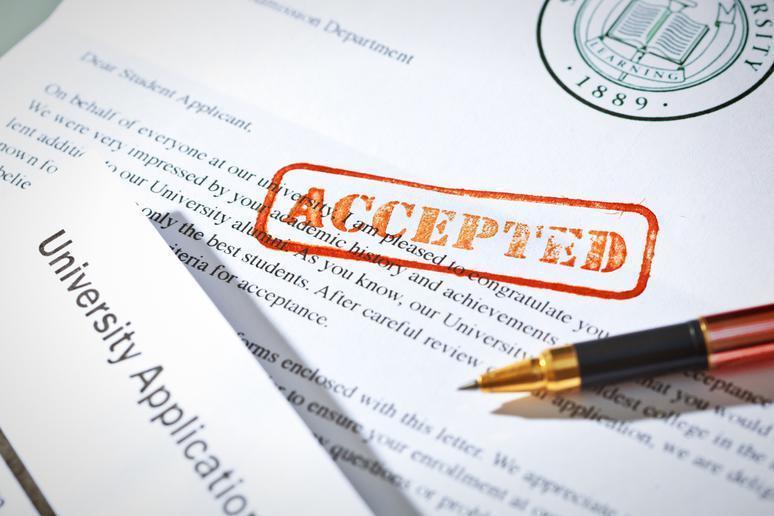Dear Mr. Bradshaw,
I am a junior in high school and I know I will face a very competitive class of applicants when I apply to college next fall. I have a 4.0/4.250 (weighted) GPA and a 1575/1600 SAT score. I participate in a number of extracurricular activities including football and wrestling, and I am the editor of our school’s literary magazine. There are 700 students in my class and most of the students who are in the top 5% have similar achievements. I am applying to most of the Ivies, Stanford and Berkeley. Is there anything I should know that will enhance my chances of getting into a top college?
Signed,
Student
Dear Student,
You will need to present yourself effectively in your applications and essays. With a GPA of 4.0/4.250 and a 1575 SAT score, you’re already academically competitive. Your extracurricular involvement in sports and as the editor of the literary magazine adds to your profile, but given the caliber of the schools you’re applying to, you’ll need to go further. Having clearly defined career goals and a unique personal narrative can make a significant difference.
One factor that many students and their advisers are unaware of is that top colleges are increasingly involving career-services staff in the evaluation of candidates for admission. Admissions officers are now paying closer attention to the job placement rates of their graduates. In response to negative publicity surrounding student debt and unemployment, elite colleges are applying a new criterion to their admissions process: employability.
While most colleges have traditionally considered applicants’ career goals, they rarely sought input from career services to evaluate whether a candidate’s aspirations were realistic. This is changing. Many schools are now asking their career development offices to participate in committee meetings to help assess whether students have a clear path to employment post-graduation.
This shift began when the economy took a downturn several years ago, prompting schools to focus more on the employability of their applicants. According to the National Association of Colleges and Employers (NACE), the employment rate for the Class of 2023 was just 52.1% at the time of graduation, a significant drop from previous years due to the challenging economic conditions.
As prospective students weigh the potential return on investment when deciding whether to apply to an expensive Ivy League school or a more affordable in-state or out-of-state institution, this focus on employability has become increasingly important.
The Ivy League initiated a trend that is now spreading to other colleges: involving career development representatives in many recruiting functions. They aim to align student interests with industry needs. For example, they may place greater emphasis on the essays of applicants expressing an interest in becoming lawyers or prioritize candidates with strong interviews and leadership potential. According to John Mahoney, Director of Undergraduate Admissions at Boston College, “We are increasingly aware of the importance of aligning our students’ aspirations with market demand. It’s not just about getting students in; it’s about getting them out and employed”
Incorporating career development officials in the admissions process helps committees “think more critically” about borderline candidates. These representatives provide insights that help admissions officers determine which students might be most in demand upon graduation. As a result, some applicants are moved onto the waitlist, while others are selected from it based on this additional input. The process has become more dynamic, with more collaboration between different offices.
To enhance your chances of admission, consider the following tips:
Clearly Defined Career Goals: Make sure your essays reflect well-defined and realistic career goals. Admissions committees are looking for applicants who have a clear vision for their future and have taken steps to pursue that path. For example, if you’re interested in law, discuss experiences such as internships, volunteer work, or coursework that have prepared you for this career.
Showcase Leadership and Initiative: Highlight leadership roles and projects that demonstrate your initiative and problem-solving abilities. Admissions officers are not just looking for academic success but also for students who show potential for leadership and impact. Your role as the editor of the literary magazine is a great starting point—expand on how you’ve led the publication, faced challenges, and achieved results.
Visit Career Development Offices: Before applying, visit the career development offices at the colleges you’re interested in. This will give you insights into how the school supports students in achieving their career goals and can inform your application. Mentioning these insights in your essays can show admissions officers that you’ve done your research and are serious about your future.
Reflect Realistically on Achievements: Use your application essays to connect your past achievements and experiences to your future goals. Admissions officers want to see that you have a coherent narrative and a realistic plan for achieving your aspirations. Be specific about what you’ve learned from your experiences and how they’ve shaped your goals.
Emphasize Unique Qualities: With many applicants having similar academic and extracurricular profiles, it’s crucial to differentiate yourself. Focus on what makes your story unique—whether it’s a personal challenge you’ve overcome, a unique perspective you bring, or a passion that you’ve pursued in-depth.
In summary, the evolving admissions landscape means you’ll need to present yourself not only as a strong student but also as a future professional with a clear, achievable vision. Keep your career goals in mind when filling out your applications, and make sure your essays and activities align with these aspirations. With this approach, you can maximize your chances of standing out in a competitive applicant pool.
Gerald Bradshaw is an international college admissions consultant with Bradshaw College Consulting in Crown Point.


